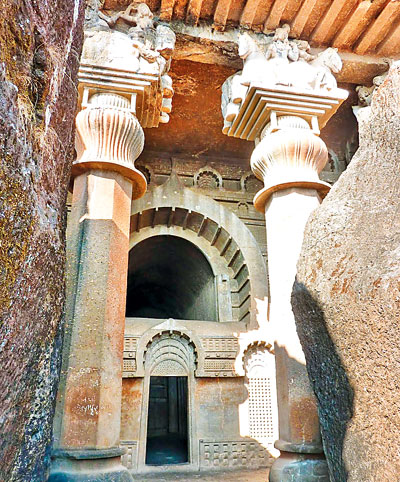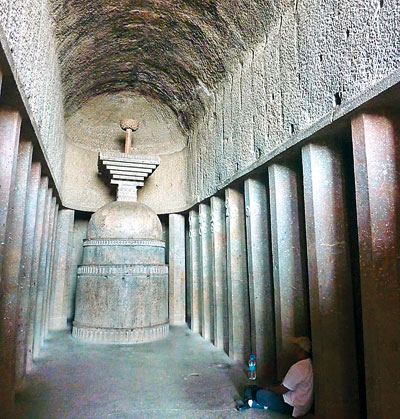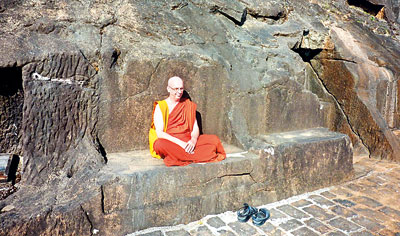Bedsa, simply serene

The main entrance of Bedsa
In the general area of Pune, some 145 km from Mumbai, are three very ancient Buddhist cave temples/monasteries dating from about 150 BCE or even perhaps a little earlier. The most interesting of these, at least to my mind, is Bedsa. Situated on the side of a high hill with a sweeping view over the landscape, harmoniously conceived, executed so perfectly that the stone could have been cut only yesterday, and with an austere but appealing simplicity, it is a gem of Indian architecture.
Last November I had the opportunity to visit this beautiful place again after many years. After a strenuous climb up the hill you arrive at the cave entrance with its three impressive pillars. Along the edge of the platform in front of the cave are several rock-cut meditation seats set back so that the meditator’s eyes would be shielded from distractions to left or right, and so his eyes would rest only on the sky empty sky and the mountains in the distance. The main assembly hall has six-sided pillars on either side and a small stupa at its far end. The acoustics in this hall are perfect as I and my two companions discovered when we chanted the Metta Sutta together.
Although going deep into the rock this hall is not gloomy, the large Bodhi leaf-shaped window letting in plenty of light and air. In fact, this Bodhi leaf-shaped motif, characteristic of much early Buddhist architecture, is used to most pleasing effect throughout Bedsa, on the windows and doors and particularly in the façade. Other than this, the only adornment in the whole of Bedsa is on the capitals of the three pillars at the entrance which show lively couples riding a horse, a bull and an elephant.
It is difficult to know how long Bedsa was inhabited for as it has no later additions. Either it was abandoned after a few hundred years or its monks were content with their modest monastery and resisted enlarging it or decorating it. The glory of Ajanta is its grandeur and size, the appeal of Bedsa is its modest simplicity.

The stupa in the small assembly hall

Meditation seat cut out of the rock


